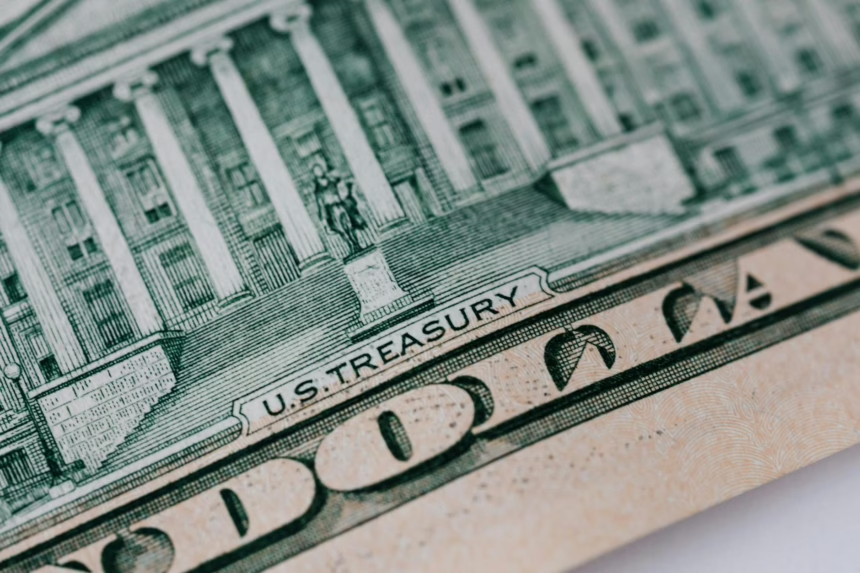Ambassador Kirk’s Diplomatic Push Highlights Opportunities and Challenges
In a move signaling the strategic importance of Africa’s largest economy, U.S. Trade Representative Ambassador Ron Kirk recently convened with Nigeria’s Minister of Commerce and Industry, Dr. Aliyu Modibbo, to explore avenues for bolstering trade and investment between the two nations. The discussions, as detailed in a USTR press release, underscore the Biden-Harris administration’s ongoing commitment to fostering economic partnerships on the continent, particularly in a nation grappling with both immense potential and significant hurdles.
Charting a Course for Enhanced U.S.-Nigeria Economic Cooperation
The meeting between Ambassador Kirk and Minister Modibbo served as a crucial platform for dialogue on concrete steps to strengthen the U.S.-Nigeria trade and investment relationship. While the specifics of their discussions are not fully elaborated in the provided source, the overarching goal was clear: to identify and address impediments to greater economic exchange. For American businesses, Nigeria represents a vast consumer market and a growing hub for various industries, from oil and gas to telecommunications and agriculture. Conversely, Nigeria seeks to attract foreign direct investment that can contribute to job creation and economic diversification.
The U.S. government, through its trade representatives, often engages in such high-level discussions to promote American commercial interests abroad. This engagement is typically framed within a broader strategy of fostering economic growth and stability in key partner nations. For Nigeria, these discussions offer a potential pathway to increased access to U.S. markets, technology, and capital, all of which are vital for its development aspirations.
Navigating Nigeria’s Complex Business Landscape
While the potential for increased trade is significant, it is imperative to acknowledge the inherent complexities of the Nigerian business environment. Reports and analyses from various international organizations and business intelligence firms consistently highlight challenges such as infrastructure deficits, regulatory uncertainties, corruption, and security concerns as factors that can deter foreign investment. Ambassador Kirk’s discussions with Minister Modibbo likely touched upon these very issues, seeking assurances and commitments from the Nigerian government to create a more conducive environment for American enterprises.
The U.S. government’s approach in these matters typically involves advocating for transparency, rule of law, and fair competition. From a conservative perspective, ensuring a level playing field and protecting American investment from undue risk is paramount. This often translates into advocating for reforms that streamline business processes, reduce bureaucratic hurdles, and enhance investor confidence. The success of these diplomatic efforts will ultimately depend on the Nigerian government’s willingness and ability to implement meaningful reforms.
Opportunities in Key Sectors: From Energy to Agriculture
Nigeria’s economy is heavily reliant on its vast oil and gas reserves, which have historically attracted significant foreign investment. However, the country is actively seeking to diversify its economic base, with sectors like agriculture, manufacturing, and technology showing considerable promise. Ambassador Kirk’s discussions may have explored opportunities for U.S. companies in these burgeoning areas, such as providing advanced agricultural technologies, investing in renewable energy projects, or supporting the development of Nigeria’s digital infrastructure.
The USTR press release, while brief, suggests a proactive stance by the U.S. in seeking to broaden the scope of bilateral trade beyond traditional sectors. This diversification is not only beneficial for U.S. businesses looking for new markets but also crucial for Nigeria’s long-term economic resilience.
The Tradeoff: Balancing Engagement with Due Diligence
For American businesses considering investing or expanding their operations in Nigeria, a careful balance must be struck between the opportunities presented and the inherent risks. While diplomatic engagements can pave the way for smoother operations, they do not eliminate the need for thorough due diligence. Understanding local market dynamics, navigating regulatory frameworks, and mitigating potential operational challenges are critical for success. Conservative investors, in particular, tend to emphasize prudence and a clear understanding of risk-reward profiles.
The U.S. government, through agencies like the U.S. Commercial Service, can provide valuable resources and support to American companies looking to engage with Nigeria. However, the ultimate responsibility for assessing and managing risks lies with the individual businesses. The U.S. administration’s role is to advocate for an environment that is as favorable and predictable as possible.
What to Watch Next: Reforms and Investment Flows
Moving forward, observers will be keen to see the tangible outcomes of these high-level discussions. The true measure of success will be in the implementation of any agreements reached and the subsequent impact on trade and investment flows. Key indicators to monitor will include any legislative or regulatory changes in Nigeria aimed at improving the business climate, the volume of new U.S. foreign direct investment, and the expansion of Nigerian exports to the U.S. market.
Furthermore, continued engagement from both governments will be essential. This includes ongoing dialogue on trade facilitation, intellectual property rights protection, and dispute resolution mechanisms. The U.S. government’s commitment to these principles, as demonstrated by Ambassador Kirk’s engagement, is a positive sign for those seeking to foster robust and equitable economic partnerships.
Key Takeaways for Engaged Stakeholders
- The U.S. government is actively pursuing deeper trade and investment ties with Nigeria, recognizing its economic significance.
- Key discussions have focused on addressing impediments to bilateral trade and fostering a more favorable business environment.
- Nigeria presents significant opportunities across various sectors, including energy, agriculture, and technology.
- American businesses must conduct thorough due diligence and understand the complexities of the Nigerian market.
- Future success will be measured by the implementation of reforms and the resulting increase in trade and investment.
The ongoing engagement between U.S. and Nigerian officials is a positive development that signals a shared desire to enhance economic cooperation. As both nations work towards shared prosperity, a commitment to transparency, fair practices, and mutual benefit will be the cornerstones of a truly successful partnership.


